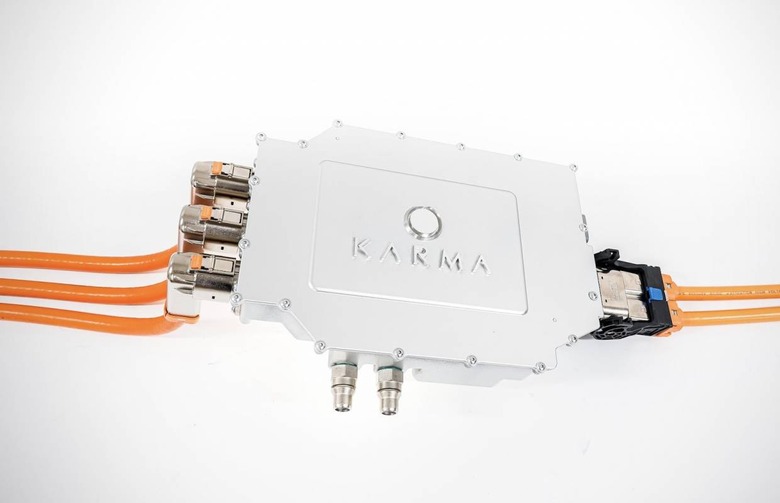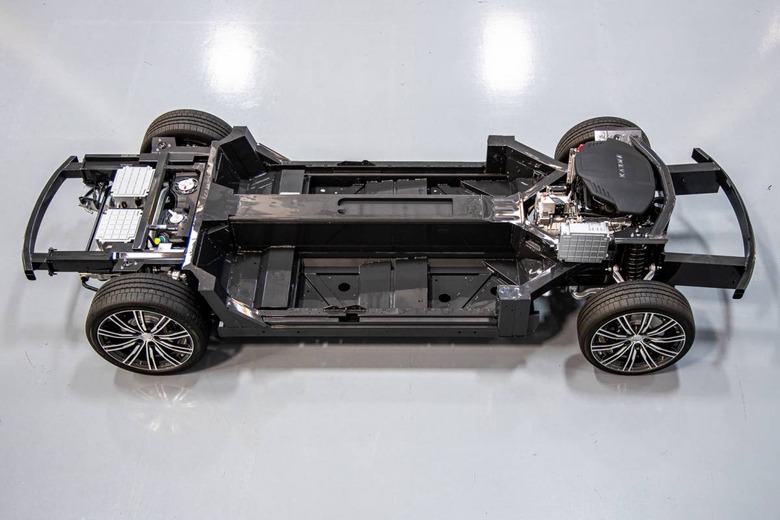This Unassuming Gizmo Could Be Karma Automotive's Key To EV Success
Karma Automotive isn't just counting on its shapely Revero GT to lure partners in on its new E-Flex Platform for electrified vehicles, but promising access to a cutting-edge component that could make EVs more efficient and faster. The automaker announced the E-Flex Platform earlier this week, the same underlying architecture it uses for its hybrid sports sedans, but which it hopes will spawn a whole range of electrified models.
Currently, Karma's range is fairly small. Along with the Revero GT and Revero GTS, the automaker showed off the new all-electric SC2 sports coupe late in 2019.
Karma isn't counting solely on vehicle sales to make it a success, however. It's also looking to underpin other companies' EVs and hybrids, by licensing its so-called E-Flex Platform. That will eventually be scalable to everything from low-cost runabouts to supercars and even autonomous delivery vans, Karma claims, with a variety of drivetrain configurations.

One key part will be the new Karma Traction Inverter. In fact, the company says it has two new Silicon Carbide (SiC) inverters in the final stage of development.
The role of the traction inverter is relatively straightforward. It effectively converts DC energy stored in the battery, to AC energy with which to power the motors in the vehicle's drivetrain. During regenerative braking, meanwhile, it's responsible for converting AC energy back to DC and storing it in the battery.
While that may be simple, though, a whole lot rests on the component's performance. An inefficient traction inverter won't maximize EV performance or overall range; that could mean, despite a big battery and powerful motors, the vehicle simply won't live up to that potential.

SiC has become an area of focus for a number of companies, given it can make for more efficient and effective inverter than the previous insulated gate bipolar transistor (IGBT) versions. That's what's currently found in the 2020 Revero GT and GTS. Karma's big claim is that its in-house SiC power inverters are now ready-for-market, with both 400V and 800V systems depending on how fast the EVs need to charge.
They're big boasts, but Karma will need all the help it can get if it's to stand out in a growing sea of electric vehicle platforms. As well as upstart rivals like Rivian, it faces strong competition from industry behemoths such as Volkswagen, each with the goal of coaxing other automakers into using their architecture and, as a result, skipping the traditional expensive and time-consuming development and regulatory process.
